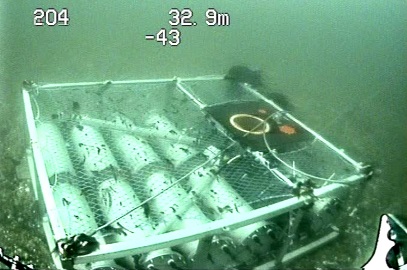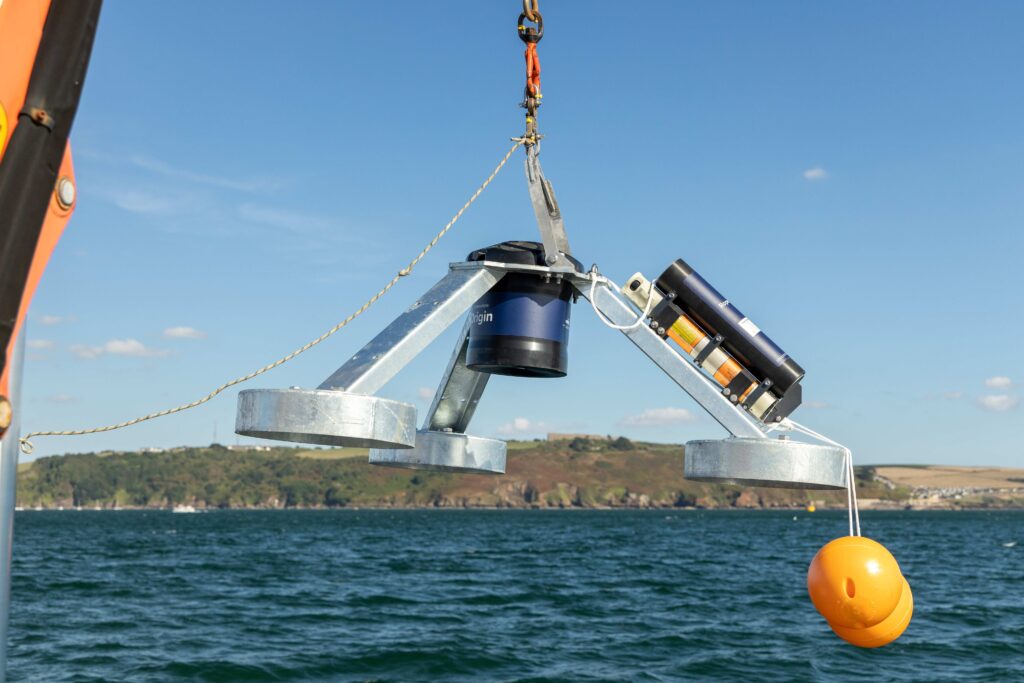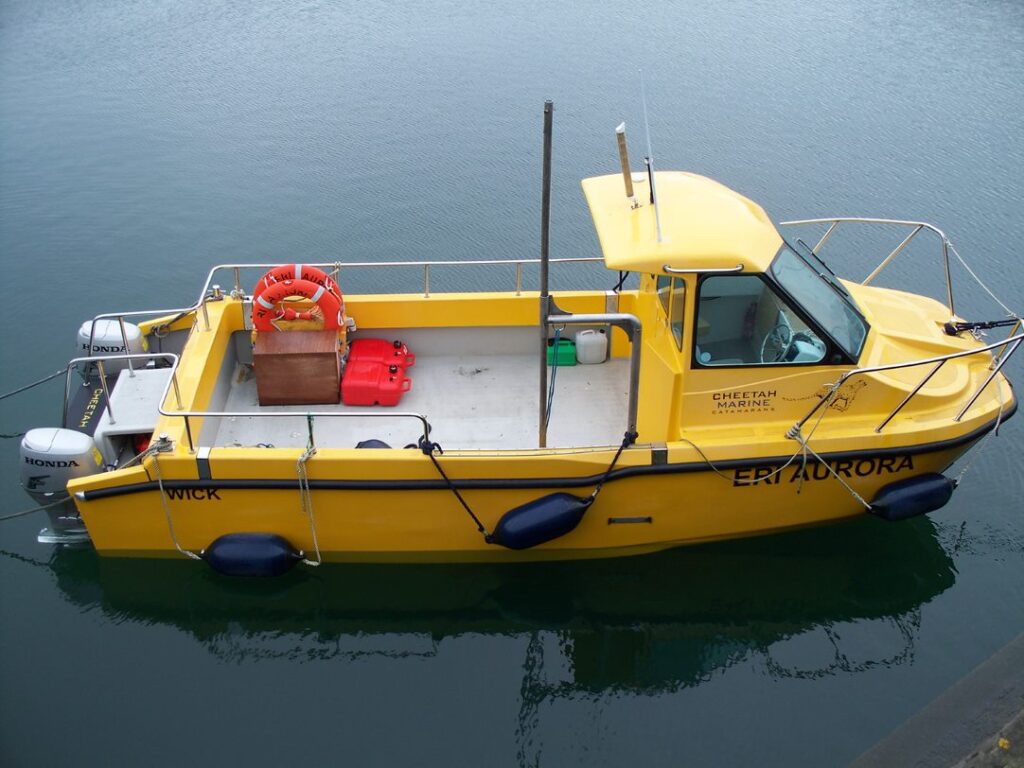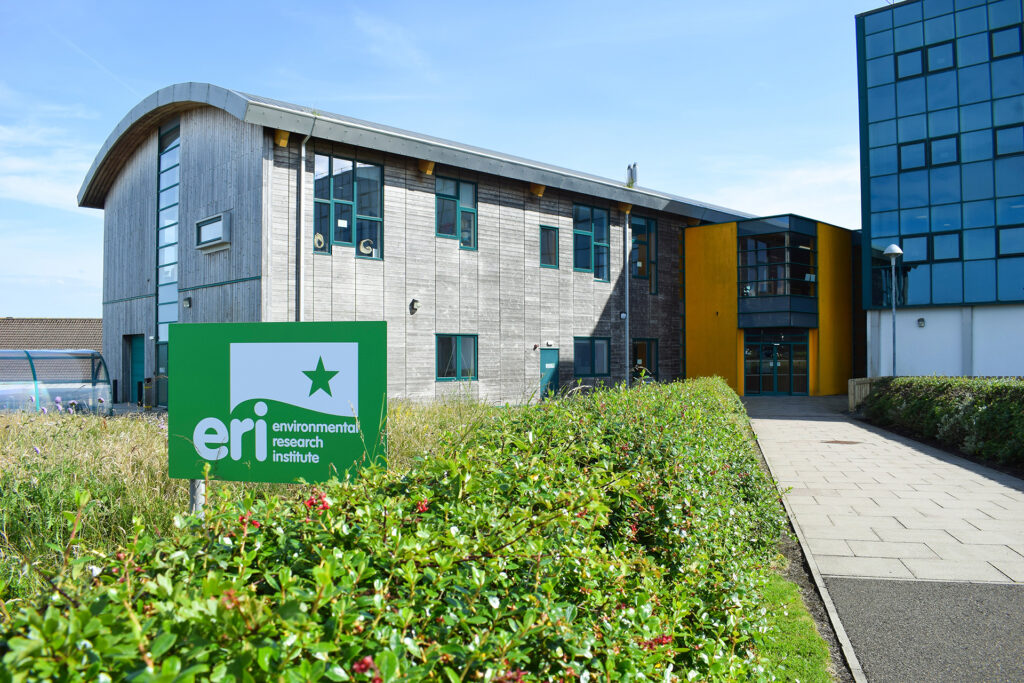We are advertising for a funded PhD studentship on ‘Validating next-generation biophysical and metocean monitoring techniques for offshore renewable energy‘ with a deadline for applications of 12:00 BST 30 November 2023. The project is supervised by Dr Benjamin Williamson (UHI), Professor Beth Scott (University of Aberdeen) and Dr Thomas Culverhouse (Sonardyne). Please get in touch with Dr Benjamin Williamson to discuss the project or with any questions.
Project description

As fixed and floating offshore wind expands on a multi-gigawatt scale, and tidal-stream energy expands to arrays, environmental monitoring is fundamental for decision making and informed policy. Hydro-acoustics (i.e., echosounders) on seabed landers or surface ships allow non-invasive detection of biomass throughout the water column to characterise the marine environment. Similarly, acoustic Doppler current profilers (ADCPs) are essential for site characterisation, including resource assessment / power-performance of tidal turbines, metocean and hydrodynamic survey, measuring wakes, etc. Recent research shows marine ecosystems are strongly influenced by physical forces that cannot usually be measured by a single instrument.
This PhD will develop and demonstrate next-generation marine sensing techniques for offshore renewable energy (ORE) and validate co-collection of backscatter and Doppler data from a single device. The project is an industry-led, multi-disciplinary collaboration spanning engineering, sensor fusion and environmental science, with opportunities for training in hydroacoustic marine sensing (UHI), metocean data collection and signal processing (Sonardyne), and oceanographic drivers of marine ecosystems (University of Aberdeen). It provides an opportunity to work with the latest cutting-edge marine sensor technology via the ‘Origin’ series and £277k in-kind equipment contribution from Sonardyne.

‘Origin’ combines state-of-the-art acoustics and sensors with onboard edge processing capability for data optimisation and an integrated modem allowing remote control and data access. The PhD will develop techniques to combine ecological and oceanographic data at fine spatial and temporal scales with techniques capable of sensing at an ORE array scale, enabling fit-for-purpose monitoring, reducing cost and risk. Similarly, on-device ‘edge’ processing and the ability to adapt sampling in real time provides an opportunity to extend finite power and data budgets, trigger a wider suite of measurements, or communicate summary data to other platforms, ships and USV/AUVs, towards future distributed, coordinated marine sensing.
The PhD is designed around three publishable objectives:
- Develop hydroacoustic processing for combined ADCP-echosounder data (e.g. fish school detection), evaluating capabilities against conventional scientific echosounders using existing datasets and at-sea field trials.
- Use existing data to develop on-device processing software, enabling real-time communication, decision making and adaptation of sampling regimes, before field trials of adaptive sampling and sensor control.
- Demonstrate co-collection and analysis of biophysical data quantifying relative biomass changes over time/depth with oceanographic parameters, to optimise array-scale ORE monitoring.
Research environment
The student will benefit from the multidisciplinary ‘Renewable Energy and the Environment’ research group at ERI-UHI, interacting with a team of ~20 researchers and PhDs working across ecological, engineering and socio-economic aspects. The group, led by Dr Williamson, is based in the purpose-built ‘Centre for Energy and the Environment’ with laboratories and instrumentation workshops. The marine facility is supported by the survey vessel ‘Aurora’ at the Pentland Firth tidal stream site for vessel instrument trials. This will be complemented by time spent at Sonardyne at sea test/training facilities in Plymouth and a 3-month industry placement to maximise knowledge exchange and industry-academia links.
Potential for impact
The PhD will support an informed evidence base for policymakers, regulators, industry, researchers, NGOs and stakeholders on the ecological significance of ORE development, with potential wider applications in O&G decommissioning, hydrogen production and aquaculture. Validated techniques for distributed monitoring at fine scales yet with wide coverage will improve understanding of ecological effects, enabling lower-cost, lower-risk site characterisation and informed decision making. Outcomes will be shared through peer-reviewed publications, and engagement with industry and regulatory stakeholders through presentations at international scientific and industry conferences, social media, and online seminars to reach an international audience (e.g. existing networks with Canada, USA, Japan and Australia).
Benefits to student

The student will have extensive opportunities for multi-disciplinary training with partner institutions and externally, to develop a wide range of skills including understanding of environmental monitoring techniques, marine ecosystems, signal processing, hydroacoustics, ORE policy and legislation, analysis of cross-receptor datasets, and offshore surveys and data collection. These multi-disciplinary transferable skills will equip the student for a wide range of future careers in academia or industry. As part of the collaboration, Sonardyne will support candidate use of their testing facilities in Plymouth, UK. These include free accommodation, a machine shop, IT facilities, two custom vessels designed for deployment of subsea instrumentation, devices to support the PhD activity (such as acoustic positioning systems, inertial navigation systems, acoustic and optical modems), software to control such devices, IT support, and trained staff to assist with the deployment and operation of Sonardyne equipment.
Candidates should have a degree in a Marine or Environmental / Biological Science discipline with a quantitative background and programming experience, or Engineering, Physics, Computer Science / Informatics with an interest in marine applications. Other relevant disciplines will be considered, and interest in multi-disciplinary research is an advantage e.g., Oceanography, Marine Ecology, Signal Processing, Statistics.
How to apply
Submit a CV and cover letter, outlining your motivation and suitability for the project to benjamin.williamson@uhi.ac.uk by 12:00 BST 30 November 2023. Informal enquiries are welcome.
UHI entry requirements apply https://www.uhi.ac.uk/en/research-enterprise/grad-school/how-to-apply/
Funding notes
The project is funded by the ETP Energy Industry Doctorate Programme, co-funded by UHI and Sonardyne, and includes an additional £277k in-kind commitment of equipment, software and engineering support.
The 3.5-year studentship, which needs to start by 28 February 2024, covers:
- Home tuition fees. There may be funding available for the International tuition fee. This will be discussed at interview.
- A maintenance grant £18,700 stipend (tax-free), £18,900 in year 2 and £19,100 in year 3.
- Approximately £12k for research training, travel and fieldwork.
- £5k to support 3 months placement at Sonardyne, including field trials and analysis.
- £10k for adaptive sampling and sensor control field trials.

